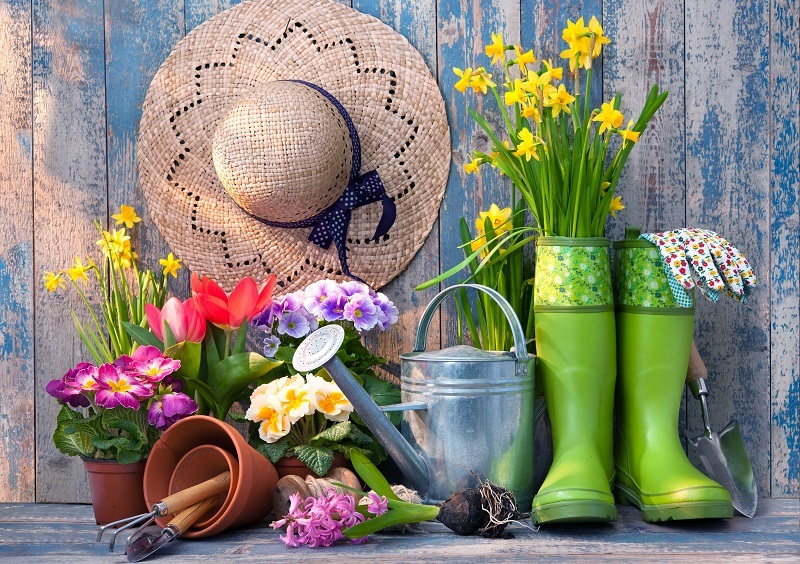8 Enlightening Facts About Sunflowers You Need to Know
Posted on 14/08/2025
8 Enlightening Facts About Sunflowers You Need to Know
Sunflowers (Helianthus annuus) have captivated people for centuries with their vibrant beauty, resilience, and diverse uses. These radiant blossoms are more than just a picturesque addition to gardens and fields. Exploring facts about sunflowers can open your eyes to their intricate biology, cultural significance, and surprising roles in our lives. Get ready to discover the most enlightening aspects of sunflowers--from their fascinating history to their ecological impact!
1. Sunflowers Follow the Sun: The Science Behind Heliotropism
Perhaps the most iconic feature of sunflowers is their ability to track the movement of the sun across the sky, a behavior known as heliotropism. When sunflowers are in their bud phase, they exhibit phototropism, where the flower heads move from east at sunrise to west at sunset.
- The Science: This phenomenon occurs because cells on one side of the stem elongate faster than those on the other, causing the head to bend.
- Why They Stop: Fascinatingly, once a sunflower matures and blossoms fully, it generally faces east and ceases this sun-tracking privilege.
- Evolutionary Benefit: Following the sun warms the flowers, attracting more pollinators and ensuring better reproductive success.
Key Takeaway
The sun-chasing habit of sunflowers serves a vital role in their growth cycle and enhances pollination, making them a marvel of plant adaptation.

2. Sunflowers Have Impressive Heights & Record-Breaking Stature
Sunflowers are renowned for towering over other flowers in the garden. The world's tallest sunflower ever recorded soared to an astounding 30 feet 1 inch (9.17 meters), grown by Hans-Peter Schiffer in Germany.
- Variety Differences: While cultivated sunflowers often reach heights of 6-10 feet, certain ornamental varieties are bred for shorter, more manageable sizes.
- Growth Rate: These plants grow rapidly, especially in fertile, moist soils with plenty of sunlight.
Fun Fact
Some giant sunflower varieties are specially named for their height, like "Mammoth Russian" and "American Giant."
3. Sunflowers Boast Intricate Mathematical Patterns
One of the most enlightening details about sunflowers is their complex spiral arrangements of seeds. These patterns are based on the Fibonacci sequence--a set of numbers where each is the sum of the two preceding ones (1, 1, 2, 3, 5, 8, 13, ...).
- Efficient Packing: The seeds are arranged at an angle of 137.5?, known as the "golden angle," ensuring optimal packing with minimal wasted space.
- Nature's Math: This spiral pattern can be seen in pinecones, pineapples, and other plants--sunflowers have some of the most visible examples.
Did You Know?
Observing a sunflower head reveals not just beauty, but nature's flawless mathematical order in design!
4. Sunflowers Have Ancient Roots and Rich Symbolism
The history of sunflowers dates back thousands of years. Native to North America, sunflowers were cultivated by indigenous peoples for food, oil, medicine, and dye long before being introduced to Europe in the 16th century.
- Spiritual Symbolism: In various cultures, sunflowers are seen as symbols of positivity, loyalty, and admiration.
- Artistic Inspiration: Renowned artists like Vincent van Gogh immortalized sunflowers, cementing their role in art and literature.
The Meaning Behind the Flower
A bouquet of sunflowers often conveys warmth, happiness, and longevity, making it a thoughtful gift for celebrations and milestones.
5. Sunflowers Offer a Multitude of Health and Nutritional Benefits
Did you know that sunflowers are not just stunning, but also nutritional powerhouses? Here are some ways sunflowers contribute to human health:
- Sunflower Seeds: High in vitamin E, magnesium, protein, and healthy fats, sunflower seeds support cardiovascular and skin health.
- Sunflower Oil: Popular in cooking, sunflower oil offers a light flavor and is rich in unsaturated fats beneficial for heart health.
- Medicinal Uses: Traditional medicines use parts of the sunflower plant to treat wounds, coughs, and inflammations.
Health Highlight
Regular inclusion of sunflower seeds and their oil in your diet can contribute to better overall wellness.
6. Sunflowers Help the Environment & Clean Up Toxic Soil
Sunflowers are environmental allies, widely lauded for their ability to extract toxins from contaminated soil. In a process called phytoremediation, sunflowers can absorb heavy metals such as lead, arsenic, and even radioactive contaminants.
- Post-Disaster Aid: After the Chernobyl and Fukushima nuclear disasters, sunflowers were planted to help decontaminate the affected soils.
- Garden Applications: Home gardeners can use sunflowers to improve the health of their plots by removing certain toxins naturally.
Hands-On Environmentalism
Planting sunflowers is a simple, effective way to contribute to environmental rehabilitation and demonstrate the profound impact one species can have on our planet.
7. Sunflowers Serve as an Essential Source for Pollinators and Wildlife
If you're interested in supporting your local ecosystem, sunflowers make an excellent choice. Their broad faces and vibrant color attract bees, butterflies, and birds--integral species within our environment.
- Bees and Pollination: Sunflowers are a favorite forage flower for honeybees, bumblebees, and solitary bees.
- Birds and Wildlife: After blooming, sunflowers provide protein-rich seeds enjoyed by goldfinches, chickadees, and even squirrels.
Invite Nature Home
By planting sunflowers, you actively encourage biodiversity and help maintain balance in your local habitat.
8. Sunflowers Bring Joy: Cultural and Festive Roles Worldwide
The radiance and cheer of sunflower fields have inspired celebrations worldwide. Many countries dedicate festivals to these golden blooms, promoting family fun, tourism, and sustainable agriculture.
- Sunflower Festivals: United States, Italy, Japan, and Canada host annual festivals where visitors enjoy fields of sunflowers, photo opportunities, and local cuisine.
- Wedding Decor: Sunflowers symbolize good luck and happiness, making them a popular choice for wedding arrangements and decorations.
- Artistic Pursuits: Photographers and artists flock to sunflower fields to capture their luminous beauty, contributing to global appreciation.
Global Appreciation
The sunflower is truly a global ambassador of joy, uniting people from all walks of life in admiration for nature's artistry.

Tips for Growing Sunflowers: Cultivate Your Own Sunlit Haven
Want to experience the magic of sunflowers firsthand? Growing sunflowers is easier than you might think:
- Choose a Sunny Spot: Sunflowers need at least 6-8 hours of direct sunlight daily.
- Plant Seeds Directly: Sow seeds outdoors after the danger of frost passes, spacing them 6-12 inches apart.
- Water Regularly: Keep soil moist but not waterlogged, especially during germination and early growth.
- Support Tall Varieties: Use stakes if growing giant sunflowers to prevent wind damage.
Conclusion: The Enlightening Impact of Sunflowers in Our World
From their sun-tracking dance to their role in environmental cleanup, sunflowers inspire awe and admiration. Whether you're drawn to their beauty, fascinated by their mathematical precision, or benefit from their nutrition, these golden blooms have so much to offer. While many see them as mere summer flowers, understanding these enlightening facts about sunflowers helps us recognize the profound ways they touch our lives, gardens, and even our planet's future.
Grow a sunflower, and you'll nurture joy, ecological health, and a deeper appreciation for the wonder of nature.
Latest Posts
What Petal Fits Your Personality? Unravel Your Floral Reflection
Pro tips for boosting cut flower longevity
Poinsettia Preservation: From Festive to Fantastic





